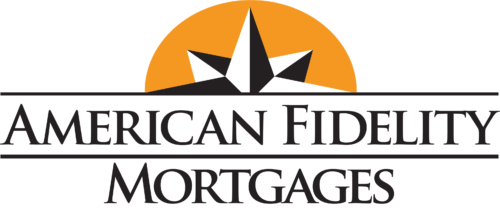A Purchase Money Mortgage (PMM) is a loan specifically created to assist homebuyers in financing their home purchases. It refers to the loan that buyers take out to pay for a property, typically provided by either the seller or a financial institution. It’s important for anyone looking to buy a home to understand how this type of mortgage functions, its advantages, and the potential risks involved.
How Does a Purchase Money Mortgage Work?
In a standard real estate transaction, the buyer usually borrows money from a lender, like a bank or mortgage company, to buy a property. However, a purchase money mortgage is distinct because it is directly linked to the home purchase. It acts as a primary funding source for the buyer to acquire the property.
Generally, this loan is secured by the property itself, meaning the lender or seller has a legal claim to the home until the mortgage is completely paid off. The borrower agrees to repay the loan over a specified term, typically ranging from 15 to 30 years, with monthly interest payments. If the borrower fails to repay the loan, it could result in foreclosure, where the lender takes possession of the property to recover their funds.
Types of Purchase Money Mortgages
There are two primary types of purchase money mortgages: traditional loans from lenders and seller-financed mortgages.
1. Traditional Lender-Financed Purchase Money Mortgages
These are the most common type of mortgages, offered by traditional financial institutions such as banks or credit unions. The buyer submits a loan application, and if approved, the lender provides the funds needed to cover the home’s purchase price. The borrower then makes monthly payments to the lender until the loan is fully repaid.
Traditional purchase money mortgages are generally divided into two categories: conventional and government-backed.
Conventional Loans: These loans are not insured or guaranteed by the government. They often come with stricter requirements regarding credit scores, down payments, and income levels. However, they typically provide competitive interest rates.
Government-backed Loans: This category includes FHA, VA, and USDA loans, which are supported by the government. These loans usually have lower down payment requirements and are aimed at helping specific groups, such as veterans, first-time homebuyers, or low-income individuals, obtain a mortgage.
2. Seller-Financed Purchase Money Mortgages
In some situations, the property seller may offer financing directly to the buyer. This arrangement is known as a seller-financed mortgage, where the seller acts as the lender, and the buyer makes payments directly to them. Seller financing can be more prevalent in niche markets or for buyers who struggle to qualify for traditional loans.
In a seller-financed mortgage, the loan terms (including interest rates, repayment period, and down payment) are negotiated between the buyer and the seller. While this type of mortgage can be beneficial for buyers who may not meet the criteria for conventional financing, it also carries certain risks, especially if there isn’t a solid legal agreement in place.
Benefits of a Purchase Money Mortgage
A purchase money mortgage provides several benefits for homebuyers, such as:
Lower Down Payment
Certain purchase money mortgages, particularly those backed by the government, require lower down payments compared to traditional loans. For instance, FHA loans may allow buyers to put down as little as 3.5% of the purchase price. This can be advantageous for buyers who may not have enough savings for a larger down payment.
1. Competitive Interest Rates
Buyers with strong credit can often secure attractive interest rates through a purchase money mortgage, particularly when working with traditional lenders. This can lead to lower monthly payments throughout the loan’s duration, making homeownership more affordable.
2. More Flexible Qualification Criteria
In some instances, buyers might find it easier to qualify for a purchase money mortgage compared to other loan types. For example, government-backed loans such as FHA and VA loans typically have more lenient qualification standards, making them accessible to a wider array of buyers.
3. Seller Financing Option
A seller-financed purchase money mortgage can be advantageous for buyers who may struggle to qualify for conventional bank financing. This option might be available in scenarios where the property is difficult to sell or the buyer has unconventional income sources.
Risks and Drawbacks of a Purchase Money Mortgage
While a purchase money mortgage can provide numerous advantages, it also carries certain risks that buyers should keep in mind:
1. Higher Interest Rates (in Some Cases)
If a buyer chooses seller financing, they might face a higher interest rate than what they would receive from a traditional mortgage through a bank or credit union. This can raise the total cost of the loan and complicate repayment.
2. Shorter Loan Terms
In some situations, seller-financed mortgages may feature shorter loan terms. This means the buyer needs to repay the loan more quickly, potentially leading to higher monthly payments. Additionally, shorter loan terms can heighten the risk of default if the buyer struggles to meet the payment obligations.
3. Risk of Foreclosure
As with any mortgage, there is always a risk of foreclosure if the buyer fails to make timely payments. It’s crucial for buyers to ensure they can manage the financial obligations before committing to a purchase money mortgage.
4. Complex Terms
Seller-financed mortgages may have less formal terms compared to traditional loans. If the buyer and seller do not establish clear, legally binding agreements, it could result in misunderstandings or disputes in the future.
Conclusion
A purchase money mortgage can be a valuable option for homebuyers looking to finance their property purchase. Whether through traditional lenders or seller financing, this type of loan is designed to help individuals secure a home by providing the necessary funds. However, it’s essential for buyers to understand the terms of their mortgage and confirm they are financially prepared to meet their obligations. By thoughtfully weighing the pros and cons, buyers can make an informed decision that suits their needs and financial situation.

